
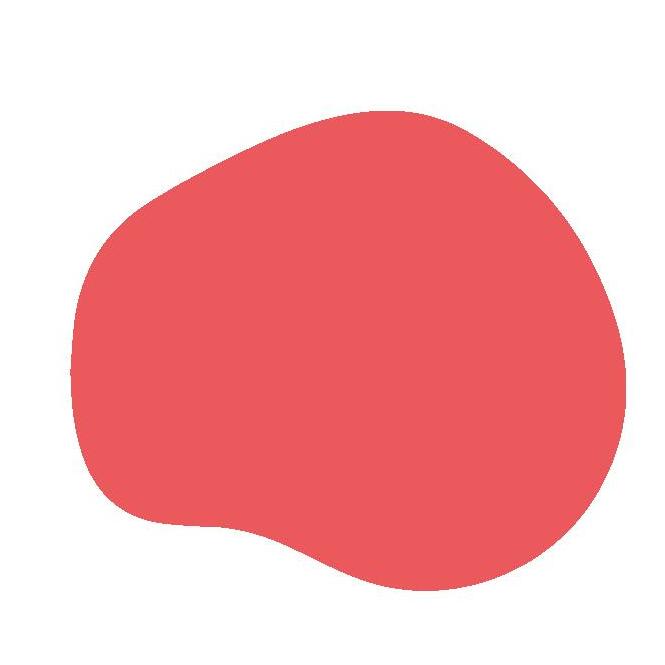
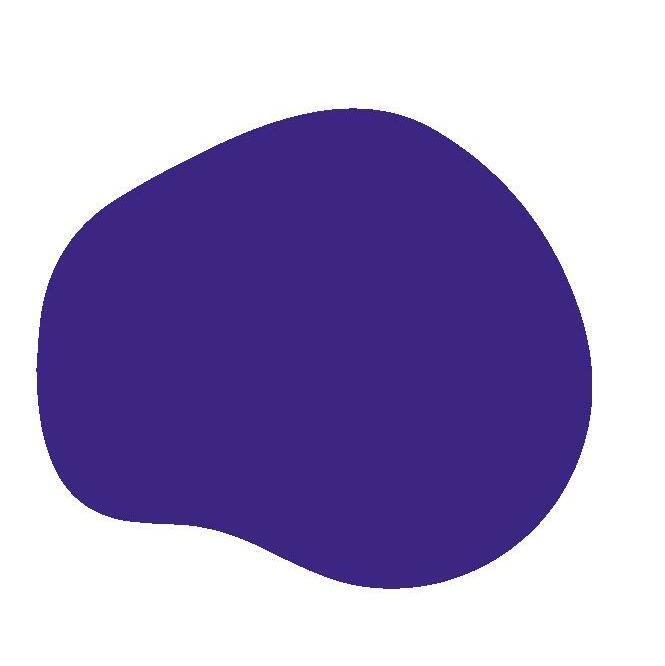
&HEART HEALTH FINANCIAL WELLBEING FEBRUARY 2023 NEWSLETTER Treat yourself with love this month...
Although February is known as the month of romance, with Valentine’s Day smack dab in the middle, this year we encourage you to focus on showing yourself some love, starting with taking care of your heart, that extraordinarily wonderful muscle.
NATIONAL HEART MONTH
There are currently approximately 7.6 million people in the UK living with heart and circulatory diseases and one in two of us will experience a heart or circulatory condition during our lifetime.
However, making small changes to your daily routine can make a big difference to your heart health, which could, in the long term, help reduce your risk of heart and circulatory related conditions such as diabetes, stroke, vascular dementia or heart disease.
Your heart is about the size of a fist and sits in the middle of your chest, slightly to the left. It is the muscle at the centre of your circulation system, pumping blood around your body as your heart beats. This blood sends oxygen and nutrients to all parts of your body and carries away unwanted carbon dioxide and waste products.
There are four chambers that make up the heart: two on the left side and two on the right. The two small upper chambers are the atria. The two larger lower chambers are the ventricles. These left and right sides of the heart are separated by a wall of muscle called the septum.
Your heart pumps blood around the body all the time – about five litres (eight pints). This is called circulation. Your heart, blood
and blood vessels together make up your cardiovascular system.
The right side of the heart receives blood that is low in oxygen because most has been used up by the brain and body. It pumps this to your lungs, where it picks up a fresh supply of oxygen. The blood then returns to the left side of the heart, ready to be pumped back out to the brain and the rest of your body.
Your blood is pumped around your body through a network of blood vessels. Blood vessels are able to widen or narrow depending on how much blood each part of your body requires. This action is partly controlled by hormones.

2 | | Your Health Newsletter www.healthpartnersgroup.com Health Your
Your
Health
Your heart has four valves. They act like gates, keeping the blood moving in the right direction:
Aortic valve: on the left side; Mitral valve: on the left side;

Pulmonary valve: on the right side; Tricuspid valve: on the right side. For your heart to keep pumping regularly, it needs electrical signals which are sent
Blood pressure: This is the measurement of the pressure within the arteries. It plays a vital role in the way your heart delivers fresh blood to all your blood vessels.
For blood to travel throughout your body quickly enough, it has to be under pressure.
This is created by the relationship between three things: n Your heart’s pumping action; The size and elasticity of your blood vessels; The thickness of the blood itself.
One heartbeat is a single cycle in which your heart contracts and relaxes to pump blood. At rest, the normal heart beats approximately 60 to 100 times every minute, and it increases when you exercise. To ensure an adequate blood supply around your body, the four chambers of your heart have to pump regularly and in the right sequence.

This is a great video showing how your heart works: https://youtu.beep4cQrYFL0w

Your Health Newsletter | | 3 www.healthpartnersgroup.com
FINANCIAL WELLBEING
HEART HEALTH AND
“Your heart pumps blood around the body all the time –about five litres. This is called circulation.”
HEART DISEASE
Cardiovascular disease
Cardiovascular disease (CVD) is a general term for conditions affecting the heart or blood vessels. It is usually associated with a build-up of fatty deposits inside the arteries (atherosclerosis) and an increased risk of blood clots. It can also be associated with damage to arteries in organs such as the brain, heart, kidneys and eyes.
CVD is one of the main causes of death and disability in the UK, but it can often largely be prevented by leading a healthy lifestyle. There are many different types of CVD – four of the main types are described in detail below.
Coronary heart disease
Coronary heart disease occurs when the flow of oxygen-rich blood to the heart muscle is blocked or reduced. This puts an increased strain on the heart and can lead to several serious conditions:
n Angina: chest pain caused by restricted blood flow to the heart muscle;
n Heart attacks: where the blood flow to the heart muscle is suddenly blocked;
n Heart failure: where the heart is unable to pump blood around the body properly.
Strokes and TIAs
A stroke is where the blood supply to part of the brain is cut off, which can cause brain damage and possibly death.
A haemorrhagic stroke is where blood leaks from a blood vessel in or around the brain and is sometimes called a brain bleed or brain haemorrhage. The blood leaks out into the brain tissue at high pressure, killing brain cells and causing brain swelling.
Find out more here: www.stroke.org. uk/what-is-stroke/types-of-stroke/ haemorrhagic-stroke
A transient ischaemic attack (also called a TIA or “mini-stroke”) is similar, but the blood flow to the brain is only temporarily disrupted. The main symptoms of a stroke or TIA can be remembered with the word FAST, which stands for:
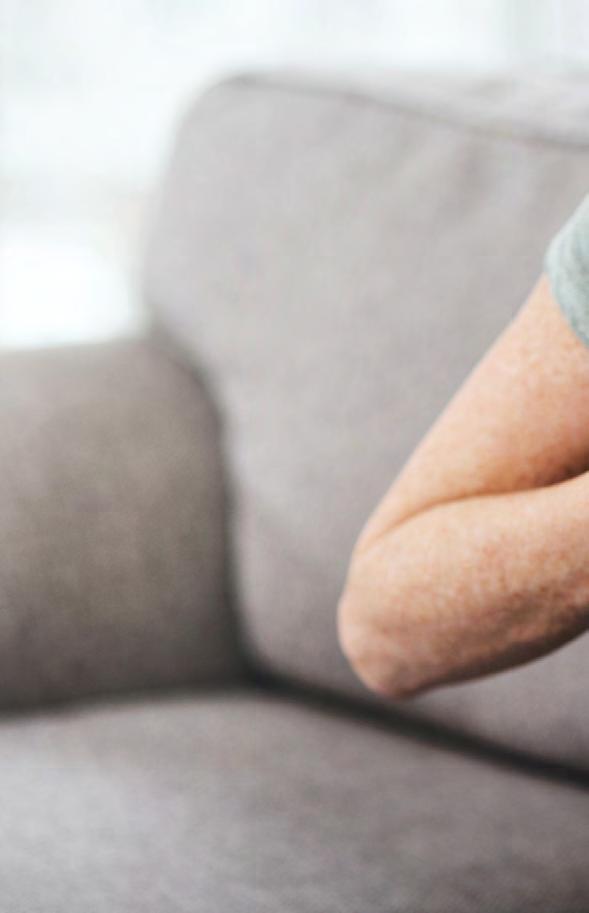
n Face: the face may have drooped on one side, the person may be unable to smile, or their mouth or eye may have dropped;
n Arms: the person may not be able to lift both arms and keep them there because of arm weakness or numbness in one arm;
n Speech: their speech may be slurred or garbled, or they may not be able to talk at all;
n Time: it’s time to dial 999 immediately if you see any of these signs or symptoms.
https://media.istockphoto.com/id/1217889729/photo/man-running-outdoors-running-checking-smart-watch-taking-a-break.jpg?s=612x612&w=0&k=20&c=jNB3H2ZiFnhaW1pQJdZ0gVMP1GajiOTuOZe76G0CkAk= 4 | | Your Health Newsletter www.healthpartnersgroup.com
Health Your
Peripheral arterial disease




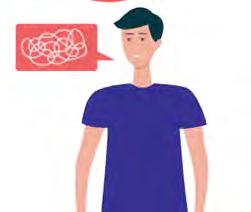

Peripheral arterial disease occurs when there’s a blockage in the arteries to the limbs, usually the legs. This can cause: n Dull or cramping leg pain, which is worse when walking and gets better with rest; n Hair loss on the legs and feet; n Numbness or weakness in the legs; n Persistent ulcers (open sores) on the feet and legs.
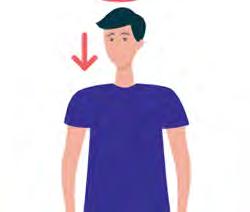
Aortic diseases

Aortic diseases are a group of conditions affecting the aorta. The aorta is the largest blood vessel in the body, carrying blood from the heart to the rest of the body. One of most common aortic diseases is an aortic aneurysm, where the aorta becomes weakened and bulges outwards. This doesn’t usually have any symptoms, but there’s a chance it could burst and cause life-threatening bleeding. All men aged 65 are invited to attend abdominal aortic aneurysm screening.

https://media.istockphoto.com/id/1217889729/photo/man-running-outdoors-running-checking-smart-watch-taking-a-break.jpg?s=612x612&w=0&k=20&c=jNB3H2ZiFnhaW1pQJdZ0gVMP1GajiOTuOZe76G0CkAk= Your Health Newsletter | | 5 www.healthpartnersgroup.com
HEART HEALTH AND FINANCIAL WELLBEING Act FAST on stroke FACE: Face Dropping ARMS: Cannot Raise Arms SPEECH: Slurred/Garbled TIME: Time to call 999
Causes of CVD
The exact cause of CVD isn’t clear, but there are many things that can increase your risk of getting it, which we call “risk factors”. The more risk factors you have, the greater your chances of developing CVD. In England, if you’re over 40, you’ll be invited by your GP for an NHS Health Check every five years (check for your country with your NHS or similar). Part of this check involves assessing your individual CVD risk and advising you how to reduce it if necessary.
The main risk factors for CVD are:
n High blood pressure (hypertension): your blood pressure is too high, it can damage your blood vessels;
n Smoking and other tobacco use: the harmful substances in tobacco can damage and narrow your blood vessels;
n High cholesterol: cholesterol is a fatty substance found in the blood. If you have high cholesterol, it can cause your blood vessels to narrow and increase your risk of developing a blood clot;
n Diabetes: diabetes is a lifelong condition that causes your blood sugar level to become too high. High blood sugar levels can damage the blood vessels, making them more likely to become narrowed. Many people with type 2 diabetes are also overweight or obese, which is also a risk factor for CVD;
n Inactivity: if you don’t exercise regularly, it’s more likely that you’ll have high blood pressure, high cholesterol levels and be overweight. Exercising regularly will help keep your heart healthy. When combined with a healthy diet, exercise can also help you maintain a healthy weight
Being overweight or obese: you’re at an increased risk of CVD if (i) your body mass index (BMI) is 25 or above – use the BMI healthy weight calculator to work out your BMI, (ii) you’re a man with a waist measurement of 94cm (about 37 inches) or more, or a woman with a waist measurement of 80cm (about 31.5 inches) or more;

n Family history of CVD: if you have a family history of CVD, your risk of developing it is also increased. You’re considered to have a family history of CVD if (i) your father or brother were diagnosed with CVD before they were 55, (ii) your mother

6 | | Your Health Newsletter www.healthpartnersgroup.com
Health Your
or sister were diagnosed with CVD before they were 65. Tell your doctor or nurse if you have a family history of CVD. They may suggest checking your blood pressure and cholesterol level;

n Ethnic background: in the UK, CVD is more common in people of south Asian, African or Caribbean background. This is because people from these backgrounds are more likely to have other risk factors for CVD, such as high blood pressure or type 2 diabetes;
n Other factors that affect your risk of developing CVD include age, gender, diet and alcohol intake.
Preventing CVD
A healthy lifestyle can lower your risk of CVD. If you already have CVD, staying as healthy as possible can reduce the chances of it getting worse.
Ways you can reduce your CVD risk:
n Stopping smoking;
n Having a healthy, balanced diet;
n Exercising regularly (adults are advised to do at least 150 minutes of moderate activity a week, such as cycling or brisk walking. If you find it difficult to do this, start at a level you feel comfortable with and gradually increase the duration and intensity of your activity as your fitness improves. Visit your GP for a health check if you haven’t exercised before or you’re returning to exercise after a long break);
n Maintaining a healthy weight with a BMI of below 25;
n Cutting down on alcohol (if you drink alcohol, try not to exceed the recommended limit of 14 alcohol units a week for men and women; if you do drink this much, you should aim to spread your drinking over three days or more);
n Medication (if you have a particularly high risk of developing CVD, your GP may recommend taking medication to reduce your risk. Medications that may be recommended include statins to lower blood cholesterol levels, lowdose aspirin to prevent blood clots and tablets to reduce blood pressure – but all of these need to be prescribed by your GP).
Your Health Newsletter | | 7 www.healthpartnersgroup.com
HEART HEALTH AND FINANCIAL WELLBEING
FINANCIAL WELLBEING
The cost of living is rising ever higher; it is little wonder that 52% of UK adults feel stressed or overwhelmed about their finances for several reasons, including debt and upcoming expenses.
Money worries can have a big impact, physically, mentally and socially. It can affect the best of us, no matter how resilient. The impacts of stress can affect everyday plans, leading many to develop insomnia, depression and social withdrawal.
So what can you do?
Have a chat
Sharing a worry with a listening, empathetic ear can often reduce (financial) mountains to molehills. You can also compare notes and find the cheapest places to shop or ways to save that you never thought of.
Make a budget
There are many tools available. These are two good ones: • www.citizensadvice.org.uk/debt-andmoney/budgeting/budgeting/work-outyour-budget/ • www.moneyhelper.org.uk/en/everydaymoney/budgeting/budget-planner
Set an achievable goal
A goal could be a holiday in six months, a new suit or a golfing weekend. You can put any spare change into a jar or open a “rounding-up” bank account. The money will soon build up and you will feel more positive with a goal in mind.
If your debt problems are more serious, the charity StepChange can advise you on how to make a debt management plan and more. They will be able to advise a range of options such as consolidation / moving bad debt, etc that are outside the understanding of those without specific expertise.
Take an inventory of your finances
To get a full picture of the state of your finances, start compiling your bank statements:

n Note how much you receive monthly n Make a list of any debts – from missed bills to a tenner you owe a friend n Categorise your outgoings. Grab a highlighter to differentiate between essential expenses and “nice to haves.” Are these ones you can cut down on?
n Consider switching to a lower rate credit card
8 | | Your Health Newsletter www.healthpartnersgroup.com
Your
Health
Take action on stress
Stick to healthy habits:
n What we eat has a direct impact on our mood and wellbeing. Make sure you eat your five a day and follow the Eatwell Plan. There are many cheap and cheerful options to be inspired by;
n Keep your alcohol intake to a minimum – drinking can make stress and worries bigger rather than smaller – and it’s expensive!
n Keep active. Going for a walk or run is free and there are lots of online apps you can use to make sure you keep on track.
Kill off bad habits
If you know there is an issue that is adding to your financial concerns such as gambling, addiction, excessive alcohol use or obsessive spending – don’t bury your head in the sand.
Seek expert help to address your problems – there are many groups such as Gamblers Anonymous or Alcoholics Anonymous, where you can meet others

n Look at your spending habits. Do you spend when you feel low or bored? Try to consider doing something else that keeps you away from the shops/computer when you feel that way
n Pay off your debts before saving

n Review your providers (mobile, electricity, insurance, etc) and consider moving to a cheaper one
n See if you are eligible for government support. Look at www. citizensadvice.org.uk/consumer/ energy/energy-supply/get-helppaying-your-bills/grants-andbenefits-to-help-you-pay-yourenergy-bills/.
Your Health Newsletter | | 9 www.healthpartnersgroup.com
WELLBEING
HEART HEALTH AND FINANCIAL
who have successfully addressed the same problems you face. Everybody needs to start somewhere and admitting there is an issue is the important first step.
Also, speak with your GP surgery if you find you are getting stressed. They may be able to provide advice, guidance or counselling.
It can be incredibly empowering to take back control of your finances and agree a realistic plan to get back on track. Doing nothing where there are concerns is never the best option.

Seek advice
If you feel you need expert help, you can speak to your EAP if you have one, or you may wish to consider these options:
n Citizens Advice: www.citizensadvice. org.uk, which covers a wide range of topics including getting help with the cost of living, getting help with bills, how to manage debt and more;
n StepChange: www.stepchange.org, which has a range of tools and guidance to help you get on top of your money worries;
n Moneyhelper: www.moneyhelper.org.uk, which is a searchable site full of financial wellbeing tools.
Sources: NHS, Money and Mind Report II, Citizen’s Advice, Gov.org, Money Helper.
https://media.istockphoto.com/id/1438449424/photo/thinking-black-man-laptop-or-finance-receipts-in-house-or-home-for-future-security-investment.jpg?s=612x612&w=0&k=20&c=uRkB78XBSGC3T3QVt1r-lTAoZpgfgx9EBCad94AUdDY= Health Your 10 | | Your Health Newsletter www.healthpartnersgroup.com
TIME TO TALK
Time to Talk Day draws attention to mental health and the importance of reaching out to others.
The day aims to help people open up and be honest about mental health, without the fear and stigma often attached to the topic. It can be daunting to express personal struggles and because of this, many people keep everything bottled up. By opening up, the likelihood of the person suffering seeking help increases, which can be crucial to the healing process.
We know that the more conversations we have, the more myths we can bust and barriers we can break down, helping to end the isolation, shame and worthlessness that too many of us with mental health problems are made to feel.
Here are some listening tips that you can consider to support your family, friends and colleagues to help you on your way:
n Ask questions and listen: show you really want to know how they are feeling –focus on them, make eye contact, put away your phone;
n Have patience: it may take time and several attempts before they’re ready to open up;
n Don’t try to fix or diagnose it: just listening is often enough;
n Use open questions, ones that need more than a yes/no answer;
n Say it back: check you’ve understood, but don’t interrupt or offer a solution;
n Have courage: don’t be put off by a negative response and, most importantly, don’t be afraid to leave silence;
n Keep it simple: chat over a cup of coffee, send a text or go for a walk together.
A small conversation about mental health can make all the difference. Find additional help here:
n Samaritans:https://www.samaritans.org
n MIND:https://www.mind.org.uk
n MentalHealthFoundation: https://www.mentalhealth.org.uk
Note:‘Women’mayincludetransmen,people whoarenonbinarywhowereassignedfemaleat birthandcisgenderwomen;‘men’mayinclude transwomen,peoplewhoarenonbinarywho wereassignedmaleatbirthandcisgendermen.
Sources: NHS Inform, BHF, NHS England, NHS Wales, MIND, Samaritans, MHF.
At Health Partners we offer a full range of tailored health and wellbeing services. Our thinking is innovative. We constantly develop new responses and tools designed to address the health and wellbeing challenges that face your business and people.
Our commitment is total. We invest in our services, creating new ones and keeping in step with every client. We constantly explore new ways of working and make no compromises in the quality of our services. Simply put, we are here to help people be their best.
https://media.istockphoto.com/id/1438449424/photo/thinking-black-man-laptop-or-finance-receipts-in-house-or-home-for-future-security-investment.jpg?s=612x612&w=0&k=20&c=uRkB78XBSGC3T3QVt1r-lTAoZpgfgx9EBCad94AUdDY= HEART HEALTH AND FINANCIAL WELLBEING Your Health Newsletter | | 11 www.healthpartnersgroup.com
n Neurodiversity n Prostate & Ovarian
n Eating
NEXT ISSUE:
Cancer
Disorders
























